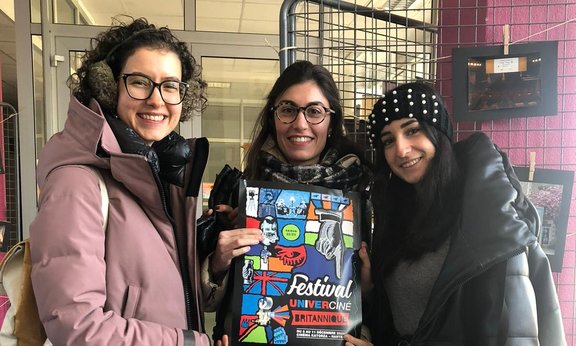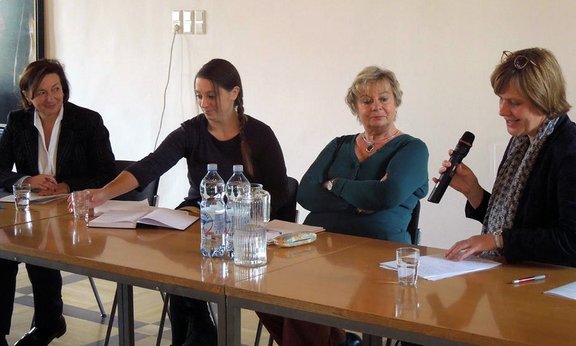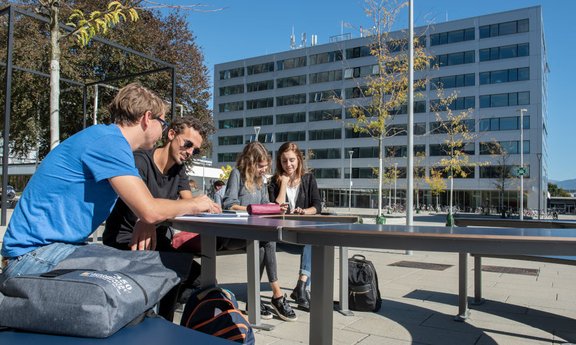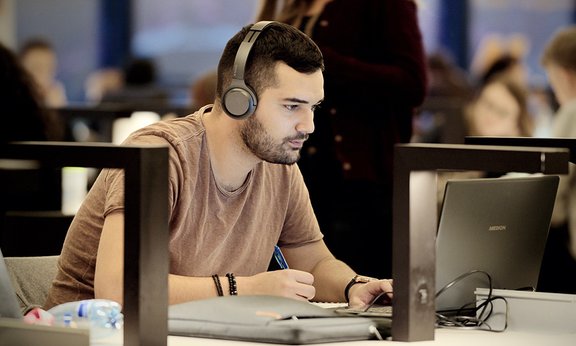Bachelor’s Programme Spanish
Would you like to enter a new culture and broaden your horizons with basic cultural techniques and extensive cultural knowledge?
Spanish is a global language and the world’s fourth-most spoken language. It is a major international language of communication in many fields, such as international cooperation, diplomacy and trade and export. The focus in this programme is the Spanish language: active and passive language proficiency as well as linguistic knowledge of Spanish.
Students also study Spanish culture, they gain knowledge about Spanish-speaking countries in Latin America and their culture and acquire intercultural competencies. The programme introduces the students to Spanish literature – one of the major global literatures.
Please note: the language of instruction for this programme is German.
Study Code
UC 033 649
Supplemental examination
Latin
Supplemental examination in Latin is required before completion of the bachelor's degree programme if this subject was not completed satisfactorily with at least 10 credit hours at a higher-level secondary school.
FAQ
Graduates are able to elaborate, evaluate and implement scientific developments in linguistic, literary and cultural-science fields and to apply them in interdisciplinary contexts. They possess scientifically well-founded theoretical and methodical problem-solving skills, interdisciplinary competences and soft skills.
Apart from the transfer of in-depth knowledge, the Bachelor's Programme Spanish focuses on the following key qualifications:
- communicative competences (written and oral expression
- mental flexibility and critical faculty (logical thinking and argumentation, fast comprehension of complex contexts, development of creative solution strategies)
- intercultural and cross-cultural comptence (dealing with different traditions of thought)
Subject-specific competences:
- Language proficiency
Command of the foreign language at level C1 based on CEFR, skills in text reception and text production, improvement of language skills by stays abroad (e.g. ERASMUS). - Linguistics
Awareness for the structures of Spanish as well as its functions and effects in different regional, social, situative and historical contexts. - Literary studies
Critical discussion of texts of different origins (also film, chanson); awareness for the interrelations between culture and text; special attention to literatures/cultures outside the Romance core countries (e.g. Latin America). - Land and culture
Awareness for political, social and economic aspects of Romance-language countries in their relevant historical context.
Based on the transfer of these competences and skills, graduates are prepared for a wide range of activities and careers in different fields: international relations, culture, media, public relations, translation, tourism, publishing, administration, advertising, economy, science.
Graduates tracking: Shows which occupational fields students enter after graduation
Faculty of Language, Literature and Culture Department of Romance Studies Examination Office Information for students with disabilities
Curriculum
From the field

EUniverCiné in Nantes
Startschuss für das zweijährige Erasmus+-Projekt EUniverCiné, das von der Italianistik der Universität Nantes initiiert wurde und an dem neben der Innsbrucker Romanistik (Evelyn Ferrari und Sabine Schrader) und der Translationswissenschaft (Marco Agnetta) FilmwissenschaftlerInnen und ItalianistInnen der Universitäten Perugia Stranieri, Banja Luka, Genua und Roma La Sapienza beteiligt sind.

Erinnern und Übersetzen
Am 10. und 11. Oktober 2019 fand in der Claudiana die internationale Tagung Translating Cultural Memory in Fiction and Testimony – Memory Studies and Translation Studies in Dialogue statt, die von Claudia Jünke (Institut für Romanistik) und Désirée Schyns (Universität Gent) organisiert wurde.

Zentrale Studienberatung
Wir sind die erste Anlaufstelle bei allen Fragen rund ums Studium für Schüler*innen, Studieninteressierte und Studierende sowie Eltern und Lehrer*innen.

Onlinesessions
In den unterschiedlichen Onlinesessions wird das vielfältige Studienangebot der Universität Innsbruck kurzweilig vorgestellt. Die Onlinesessions sind eine gute Plattform, um schnell und unkompliziert die richtigen Antworten auf individuelle Fragen zu bekommen.
Related studies

English and American Studies (Bachelor)
Bachelor of Arts

Educational Sciences (Bachelor)
Bachelor of Arts

History (Bachelor)
Bachelor of Arts

French (Bachelor)
Bachelor of Arts




















